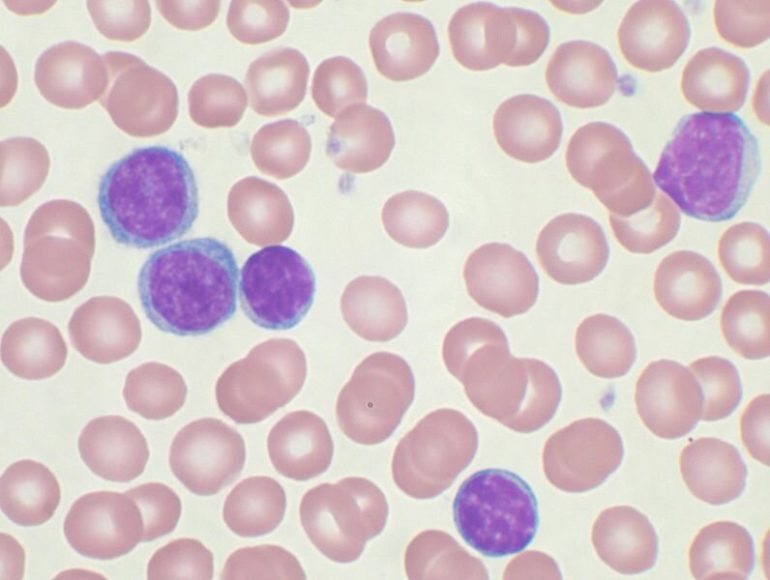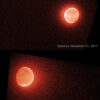New research published today in JAMA Oncology reports how two separate DNA changes appear to predict aggressive childhood leukemias when they occur in combination. Over the course of a decade of work in several study sites spanning multiple continents, the researchers evaluated tumor characteristics of more than 1,300 childhood cancer patients who were diagnosed with B-cell acute lymphoblastic leukemia (ALL), a type of cancer that affects the white blood cells of the bone marrow. ALL is the most common type of cancer in children, according to the Leukemia & Lymphoma Society. This study illuminates genetic understanding of this disease in children with the worst outcomes, including relapse and/or death.
The study team explored the DNA of leukemia cells to look for common changes. “We found a barely noticeable area of DNA, known as 22q11.22, to be missing in about 30–40% of pediatric B-cell ALL patients,” says Joshua Schiffman, MD, co-senior author on the study. Schiffman is a pediatric cancer physician-scientist at Huntsman Cancer Institute (HCI) and professor of pediatrics at the University of Utah (U of U). “We began to wonder if something so small was missing so often, could this missing piece of DNA impact survival?” That’s when the study team turned their attention to a much better-known gene in childhood leukemia called IKZF1.
“IKZF1 changes have puzzled doctors for some time,” explains Luke Maese, DO, a pediatric oncologist at HCI and associate professor of pediatrics at the U of U who cares for children with leukemia at Intermountain Primary Children’s Hospital. “We have known for over a decade that IKZF1 changes predict a very poor outcome in some, but not all, patients.” The study team began to investigate if this missing part of 22q11.22 could work together with IKZF1 changes to more reliably predict outcomes.
“Sure enough, we found that patients with both the 22q11.22 deletion and the IKZF1 changes—collectively known as a ‘double deletion’—had some of the worst outcomes in childhood leukemia,” says Schiffman. The team found that patients who already had an IKZF1 alteration had almost twice the risk of relapse if they also had a deletion in the 22q11.22 region.
The research team utilized sophisticated genomic analysis techniques to evaluate both inherited and environmental changes in the tumors of children with B-cell ALL. They evaluated genomic information of childhood cancer patients across multiple states and countries. The study included cohorts of childhood leukemia patients who had Down syndrome. Children with Down syndrome carry a higher risk of leukemia.
David Spencer Mangum, MD, co-lead author and now an assistant professor of pediatric hematology/oncology at Nemours Children’s Health, remembers when he started working on this study more than 10 years ago as a medical student visiting Schiffman’s lab at HCI. “Throughout all of my years in training, we never stopped trying to understand how this 22q11.22 deletion could impact children with leukemia. We gathered data from many different clinical trials to make sure this finding was real and reproducible,” explains Mangum. “Our findings are significant because we found that the likelihood of relapse and death was consistent across multiple different cohorts of children with ALL, including children with Down syndrome.”
The research team hopes this finding can yield new insights into treatments for childhood leukemia. For example, the frequency of the 22q11.22 focal deletion indicates it may be important for leukemia development, and the combined association with worse outcomes means it could be a useful clinical prognostic marker in the future. “Kids with double deleted leukemia may need more treatment—or bone marrow transplants right away—whereas kids without double deletion may require less toxic chemotherapy to still achieve excellent outcomes. All of this needs to be further explored,” says Schiffman.
Genetic mutations may add to racial disparity in child B-ALL
More information:
David Spencer Mangum et al, Association of Combined Focal 22q11.22 Deletion and IKZF1 Alterations With Outcomes in Childhood Acute Lymphoblastic Leukemia, JAMA Oncology (2021). DOI: 10.1001/jamaoncol.2021.2723
Provided by
Huntsman Cancer Institute
Citation:
Genomic markers of aggressive childhood leukemias identified (2021, August 20)
retrieved 22 August 2021
from https://medicalxpress.com/news/2021-08-genomic-markers-aggressive-childhood-leukemias.html
This document is subject to copyright. Apart from any fair dealing for the purpose of private study or research, no
part may be reproduced without the written permission. The content is provided for information purposes only.



